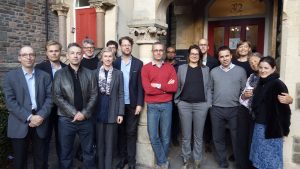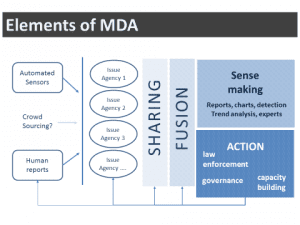 4th European Workshops in International Studies (EWIS)
4th European Workshops in International Studies (EWIS)
Cardiff, 07-10 June, 2017: New Frontiers in International Relations
Call for Workshop Proposals (Deadline 30.09.2016)
The European International Studies Association (EISA) invites proposals for workshops as part of EWIS 2017 to take place at Cardiff University, UK, 07-10 June 2017. The workshops allow scholars to engage in sustained, in-depth discussion with a diverse range of their peers from various institutions, countries, disciplines and career stages. EWIS has quickly proven to be a popular and productive format, proving ideal for the preparation of special issues, edited volumes or for pushing the boundaries of current research and exploring new ideas, themes and directions.
EWIS 2017 will be held at Cardiff University, a world-leading hub of expertise in International Relations. As well as an intellectually stimulating environment, the university is in walking distance from the city centre, which not only provides all the amenities one would expect of a dynamic capital city. Cardiff is also well connected for easy arrival and departure by train or plane, and offers a great base from which to explore the beauty of Wales.
With the EWIS 2017 theme ‘New Frontiers in International Relations’ we invite in particular workshops that aim at exploring the frontiers of the discipline of International Relations, by pushing its intellectual, theoretical and methodological boundaries, opening new agendas or revisiting established ones, and engaging in dialogues with cognate disciplines such as social theory, geography, cultural studies, economics, or sociology.
EWIS can accommodate up to 20 workshops with a maximum of 20 participants in each workshop. We are seeking proposals for workshops on specific themes within the broad field of International Studies from potential convenors who would organize and chair the workshops. We particularly encourage proposals that address the theme of Cardiff 2017 ‘New Frontiers in International Relations’. The proposals should include:
Workshop title
Description of workshop topic and its relevance (max 500 words)
An indication of possible paper topics and potential participants (1-2 pages)
A short CV of each workshop convenor (max 1 page each)
Conditions:
There can be up to two convenors of each workshop. Workshop convenors must be current EISA members. They will pay a reduced participation fee and they will be invited to the workshop convenors’ dinner. They will, however, have to make and pay for their own travel and hotel arrangements.
Schedule: The deadline is 30 September 2016. Successful proposals will be notified by 21 October 2016. There will then be an open call for papers which will run until 16 December 2016. The papers will then be selected by 13 January 2017. Registration will be open until 03 March 2017.
Submission & Inquiries: All proposals should be submitted as pdf attachments to Dr Christian Bueger (for Cardiff University) BuegerCM@cardiff.ac.uk and Dr Benjamin Tallis (for the EISA) tallis@iir.cz and copied (cc) to EWIS2017@cardiff.ac.uk.
Please contact info@eisa.org for general enquiries about EWIS2017.





